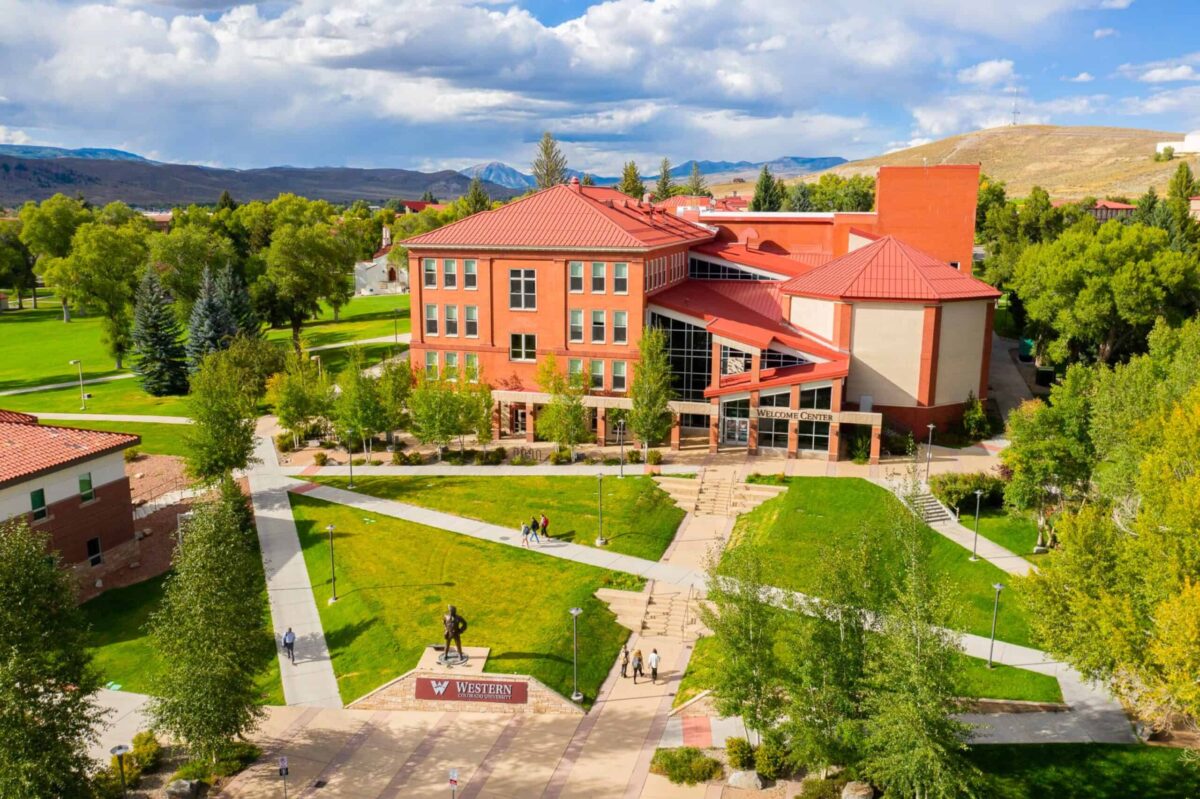
Western is hosting a “Your Seat at the Table” Hunger Banquet event on Thursday, April 7 at 5: 30 p.m. in the UC South Ballroom. The first 25 students will be able to participate in a food insecurity simulation using real food to showcase the disparities in local food access, utilizing data specific to Gunnison County obtained from the Gunnison Country Food Pantry (GCFP).
The event will also feature a resource fair of tables and educational activities from local organizations like the GCFP, Mountain Roots, local governmental resources, and representatives from the Swipe Out Hunger program. GCFP’s Executive Director, Jodi Payne, will also be giving a presentation on what it means to be food insecure, and how food insecurity manifests within the valley.
Organizing the event is Miriam Olvera, the Program Coordinator for the Multicultural Center (MCC). Olvera assisted the MCC’s affiliated clubs: Amigos, Asian Pacific Islanders Club, Black Student Alliance, Native American Student Council, and the Polynesian Chant and Dance Club, with their programming and operations. Olvera also has the freedom to host events of her own choosing, which included the Compelling Conversations series last semester.
Currently, Olvera is helping Western’s administration seek out two formal designations from the Colorado Department of Higher Education (CDHE), both of which address what are known as “social determinants” of student success, socioeconomic, health, and accessibility factors that play an outsized role in outcomes involving overall mental and physical health, graduation rates, happiness, and other key facets of life.
Western’s application to become a Healthy Minds Campus, promoting mental health on campus, was submitted several weeks back. The checklist items to achieve the designation include providing access to online mental health resources, the creation of a suicide prevention campaign, providing mental health training for faculty and staff, and the participation in mental health awareness campaigns.
The school has further to go on the Hunger Free Campus designation, the specifications for which include offering variability in food plans (including options to offer less than 10 meals a week to not interfere with SNAP eligibility– information for which can be found on the state’s website), hosting awareness events (which the Hunger Banquet qualifies as) supporting local food pantries, maintaining a campus garden space, offering educational resources in additional languages, and having a student-run organization dedicated to addressing food insecurity.
Making the effort to achieve the two state designations opens Western up to additional financial resources via state grants and serves as an emblem that Western is dedicated to addressing these barriers to student success head-on.
“There’s just such a big stigma around food insecurity,” adds Olvera, who cites the concerns many students and others have with using resources they believe are more needed by others. Yet, the GCFP is typically overflowing with food, and is moving to a new space this summer along Highway 50 as a result of outgrowing its former location. “People think that because you need assistance it’s a bad thing, but the resources are there: [so] why not?” asks Olvera.
She adds that access and cost are too huge barriers. Sodexo provides meal plans for students, but the options are pricey at roughly $10 per swipe, local food markets are also not cheap, and the food pantry can prove too far to walk for students with busy schedules or faced with often adverse weather conditions, plus walking home with the food you grabbed is limiting. Olvera says that taking all these factors together, she knows students who go to bed hungry without viable options to feed themselves affordably.
She notes that options have been discussed to utilize vans to transport Western students to and from the food pantry to access the wide variety of options on offer. “One thing too is you might [technically] have enough food, but do you have a well-balanced diet? Do you have access to fresh greens, or do you have a good amount of protein?” adds Olvera, all considerations which the GCFP is designed to address.
To address these issues, Olvera was asked to chair Western’s newly-established Hunger-Free Committee, which also includes Jodi Payne and Pantry Manager Angie Krueger of the GCFP, along with Western’s Dean of Students Gary Pierson, Brad Wheaton, who works with Gunnison County Health and Human Services on SNAP program enrollment, and Dr. Kate Clark, a professor in the Clark Family School of Environment and Sustainability (ENVS) program.
Also on the Committee are Davis Clark, a Master’s of Environmental Management (MEM) student who works with both Mountain Roots and Coldharbour as an AmeriCorps VISTA, Eric Jaeger, Sodexo’s General Manager at Western, and Meaghan Forbes, a member of Omicron Delta Kappa (ODK), which hosts free breed and pop-up pantry events on campus.
The Hunger Free Committee is also working to develop a program centered on food security recognition and resources training for Orientation leaders, Resident Assistants, and other student leaders on campus.
Editor’s note: Western’s ODK chapter will be hosting the final pop-up on Thursday, April 7 from
10 a.m. to 2 p.m. Stay tuned for more coverage on the work being done to ensure food security for Western’s community.
A list of all the Hunger-Free and Healthy Minds campuses in Colorado can be found below:
Healthy Minds designated schools:
- Colorado Mountain College (all campuses)
- Colorado State University
- Colorado State University – Pueblo
- Fort Lewis College
- Metropolitan State University of Denver
Hunger Free designated schools:
- Colorado Mountain College (all campuses)
- Colorado State University
- Colorado State University – Pueblo
- Fort Lewis College
- Metropolitan State University of Denver
- Pueblo Community College
- University of Colorado Boulder
- University of Colorado Denver

